The failure of the US to honour the key basis of the Istanbul negotiations, highlights the absence of goodwill in resolving the standoff with Iran.
The Oxford Research Group’s (ORG) briefing, Iran’s Nuclear Impasse: Breaking the Deadlock, published before the second round of talks between Iran and the P5+1 in Baghdad on May 23, proposed some positive principles for a successful outcome of the negotiations. However, it suffers serious drawbacks, which have become more clearly highlighted with the result of the recent Moscow negotiations.
At the conclusion of the third round of talks between Iran and P5+1, the initial optimism about the resolution of the stand-off between Tehran and Washington DC over the Iranian nuclear programmehas been replaced for many keen observers by a sober appreciation of the nature of the conflict and the obstacles to reaching anything approaching a workable deal. The events preceding and concurrent with the negotiations will have further disabused the international community of the illusion of "goodwill" on the part of the Obama administration.
The Baghdad Talks
Following the first round of negotiations in Baghdad in April 2012, the US Congress passed a near unanimous bill moving the US' “red line”, from weaponisationby Iran to that of Israel’s redline of "nuclear capability". The bill also made the termination of US sanctions conditional upon such demands on Iranian domestic politics which, in the context of the raging covert war by the US and Israel inside Iran, is tantamount to a demand for regime change. Therefore, even a surrender of Iran’s right to enrichment would fail to guarantee the removal of the draconian unilateral economic sanctions by the US, designed admittedly to hurt the population. The bill therefore, increased substantially the risk of war — as and when it becomes ‘feasible’ — and sabotaged the chances of a successful deal.
Ahead of the second round of the negotiations in Baghdad, Iran made a provisional agreement with the International Atomic Energy Agency (IAEA) Chief Inspector, Yukiya Amano, to provide access to the Parchin military site, where it is claimed nuclear weaponisation related tests may have taken place. According to Iran’s agreed guidelines with the IAEA, Tehran is not obliged to open any non-nuclear site to inspection. This important move by Iran, at great risk to its security, was played down by the US' negotiating team as “irrelevant” to the talks.
There have also been revelations about the Flame virus attack – jointly by the US and Israel — on the Iranian government computer network and on oil and nuclear installations. As detailed in The New York Times on June 1, the Obama administration’s illegal, dangerous, and accelerating cyber war, in collaboration with Israel, against Iran’s nuclear and other infrastructural facilities began as soon as Barack Obama took office and as he was stretching out his much publicised “open hand ” towards Iran.
In Istanbul, as announced by the EU Foreign Policy chief and the representative of the P5+1, Catherine Ashton, the Non-Proliferation Treaty (NPT) and gradual reciprocity had been established as the key basis for the negotiations. In Baghdad, Iran conceded to limit the level of enrichment to below 5% and to transfer its stockpile of 20% enriched uranium out of Iran. The US failed to honour the Istanbul agreement by demanding that Iran surrender its right to enrichment as enshrined in the NPT, and by refusing a reciprocal reduction of sanctionsin return for Iran’s concessions. This highlights Washington's absence of goodwill in resolving the standoff with Iran and renders the ORG’s analysis redundant and in need of revision. The analysis is framed in error and factually uninformed.
Dominant Western Discourse
Contrary to the ORG’s stated principle of neutrality, the analysis is framed within the dominant Western discourse. It takes at face value the US/Israeli led accusations about Iran’s nuclear programme — despite the intelligence verdict from both countries stating an absence of a nuclear weaponisation programme in Iran — and legitimises the demands on Iran to forfeit its rights under the NPT; “Due to domestic political constraintsas well as Iran’s inadequate levels of cooperation in the past, the pendulum may have swung too far in favour of punitive measures, with a resultant dearth of proposals and lack of appetite for constructive engagement”.
Thus, the ORGattributes the current punitive measures against Iran and the ‘deadlock’ to Tehran's “inadequate cooperation” rather than a continued US/Israeli policy of coercion in a scenario of manufactured ‘crisis’. All the references in the IAEA reports to Iran’s inadequate level of co-operation related to the access provisions under the Additional Protocol, which Iran, based on its Safeguard Agreements with the IAEA, is not obliged to provide. However, as a confidence building measure during the negotiations with the EU3 (France, Germany and the UK) between 2003 and 2005, Iran voluntarily accepted the Additional Protocol and halted enrichment of uranium. Iran has maintained its readiness since to implement the Additional Protocol on the condition that its right to enrich uranium as a member of the NPT is recognised and respected.
Notably the ORG does not shy away from blaming Iran even for the US backtracking from the uranium swap deal of 2010. Referring to the failure of the uranium swap deal in September 2009, the briefing concludes that “Nine months later, because of extensive investment in the sanctions route and suspicions that Tehran was simply buying time, the US did not entertain the May 2010 Tehran Declaration”.On April 20, 2010, following a meeting with the Brazilian President Luiz Inacio Lula and the Turkish Prime Minister Recep Tayyip Erdogan, in the Nuclear Security Summit in New York, Obama wrote in a letter to Lula that “Iran’s agreement to transfer 1,200kg of Iran’s low enriched uranium (LEU) out of the country would build confidence and reduce regional tensions… This element is of fundamental importance for the United States… [as] Iran would begin to demonstrate peaceful nuclear intent”.Less than a month later on May 18, 2010, Iran signed the Tehran Declaration of the uranium swap deal. However, this was promptly discarded and reciprocated with yet another sanctions resolution from the Obama Administration.
The analysis proposes a re-adjustment of the Dual Track approach, but legitimises the strengthening of the economic war on a nation of 76mn by stipulating: “when and if Iran offers meaningful concessions to allay IAEA concerns over proliferation and weaponisation”, describing the Dual Track as “not without its merits”. In fact all the proposed concessions from Iran — implementing the Additional Protocol, limiting the level of enrichment and transferring the uranium stockpile out of the country — had already been on the table as bargaining chips in return for Iran’s right to enrich, prior to the introduction of sanctions. But even if sanctions succeeded in wrenching concessions, as claimed by the proponents of "coercive diplomacy”, this would not justify their legitimacy; it merely demonstrates the dominance of aggressive lawlessness in international relations and the moral bankruptcy of the West in its disregard for international law and the UN Charter.
The ORG’s absence of neutrality and its advocacy for "coercive diplomacy" against Iran is further demonstrated in its concern about the “weakening [of] the resolve on the part of key members of the international community, notably Russia and China”. This presumably refers to Russia and China’s refusal to impose further unjustified Security Council sanctions or not to accept the US/EU’s sanctions on the lifeline of the Iranian economy.
Although the ORG has in the past laudably warned against the consequences of a military attack on Iran, it does not propose the removal of the military option by Western powers. Even worse, the ORG envisions an alternate scenario should diplomacy fail, with the use of force on one hand and Iran’s acquiring of nuclear weapons on the other. “This briefing is based on the conviction that opportunities exist for a comprehensive settlement, avoiding the inevitably destabilizing use of force or the development by Iran of a nuclear arsenal”. It is not surprising then that the ORG quoted British Foreign Minister, William Hague, who promised “serious consequences” and warned that “Iran could be responsible for a new “Cold War” if it insisted on pursuing nuclear weapons”. However, the ORG did not warn against The Hague's warmongering of the sort that led to the illegal and immoral invasion of Iraq, and does not propose the removal of the military option.
The ORG’s theoretical framing of the US-Iran standoff and the understanding of the nuclear issue erroneously applies group relations theories and conflict resolution principles in a geopolitical context of wars of dominance and balance of power. “The absence of diplomatic relations has created a profound sense of misunderstanding about the motivations and intentions of each side”. Thus it disregards the power imbalance and the actual history of the standoff rooted in the geopolitical ambitions of the US.
The current stand-off over Iran’s nuclear programme and the US plans for a regime change has its historical parallel in the US/UK’s overthrow in 1953 of the popular nationalist government of Mohammed Mosaddegh who put an end to the British exploitation of Iranian oil wealth by nationalising the oil industry, an offence for which Iran was referred to the Security Council. Then too Iran was labeled as a “threat to international security” and British warships blockaded the Persian Gulf to enforce a crushing embargo on the export of Iranian oil. Following the Iranian Revolution, which toppled the US-backed Mohammad-Reza Shah, the Americans actively partook in the eight-year long Iran-Iraq war. Iran’s attempts to reach out to the West, following the devastation of the war, was responded to with economic sanctions by then President Bill Clinton. Moreover, Iran’s cooperation in the overthrow of Taliban was met with President George Bush’s Axis of Evil designation in 2002, and the US‘s rejection of President Mohammad Khatami’s ‘Grand Bargain’ of 2003.
Pro-War Think Tanks
The “total war” and “full spectrum dominance” policies of the Neo-Conservatives have guided US foreign policy since the mid-1990s. The reshaping of the map of the Middle East which began with the invasion of Afghanistan and Iraq has continued under Obama with the NATO’s ‘humanitarian intervention’ in Libya, interference and potential intervention in Syria, and with eyes on Iran as the “ultimate prize”.
In relation to the uranium swap deal, the ORG proposes that if Iran agrees “to a single shipment, this would demonstrate to the E3+3 [including China, Russia and the US] that Iran was negotiating in good faith and had confidence in the commitment of the other parties”. Again there seems to be a problem with wrong framing of the issue, as if Iran’s absence of trust in the good faith and commitment of the other parties is a matter of their perception rather than a justified concern based on historical precedence of the West’s disregard for international law and its total impunity. The US's three decades of violation of Article IV of the NPT — its sabotaging of Iran’s lawful contracts with other countries, such as Germany and China to develop a civilian nuclear technology, with total impunity — is an example of numerous serious violations of international law. The US's covert war of destabilisation and its cyber war against Iran are the running examples of such violations, not to mention the invasion of Iraq based on fabricated evidence, and without the UN Security Council's authorisation, which destroyed that country’s infrastructure, and displaced and killed millions of civilians.
The suggestion that “The deal should also be seen by all parties as “equitable” and “just””, is again framed in error. This is not a dispute between two equal adversaries with legitimate rights. Rather, it is a geopolitical strategy by the superpowers for balance of power, and hegemony.
Finally, in recognition of a possible “asymmetry in negotiations”, the authors comment that “the negotiating table is structured in such a way that the E3+3 outnumber the Iranians”. To resolve this “unequal power relationship around the table”, the ORG proposes that: “A smaller group could sit around the table in order to create a more symmetrical relationship." It is an interesting slip that the denial of the unequal power relationship at the root of the larger conflict in the analysis, manifests itself in the concrete and absurd attempt to put right the sitting arrangement of the adversaries.
Neo-conservative think tanks, such as the American Enterprise Institute and the Institute for Near East Policy, as well as the Israel lobbies in the US and the UK, played a crucial role in manufacturing consent about Iraq’s possession of WMDs and obtaining politicians’ consent for war. The apathy towards sanctions that killed over a million people and destroyed Iraq’s infrastructure before the 2003 invasion, could not have existed without the insidious influence of pro-war think tanks. It is in this context that the ORG, as a reputable and trusted think-tank, for its neutrality and expertise, must revisit this analysis for unwitting errors and shortcomings, particularly in light of the developments and revelations since the negotiations between P5+1 and Iran began.
*[A version of this article was originally published by the Campaign Against Sanctions and Military Intervention in Iran (CASMII) on June 22, 2012.
The views expressed in this article are the author's own and do not necessarily reflect Fair Observer’s editorial policy.
Support Fair Observer
We rely on your support for our independence, diversity and quality.
For more than 10 years, Fair Observer has been free, fair and independent. No billionaire owns us, no advertisers control us. We are a reader-supported nonprofit. Unlike many other publications, we keep our content free for readers regardless of where they live or whether they can afford to pay. We have no paywalls and no ads.
In the post-truth era of fake news, echo chambers and filter bubbles, we publish a plurality of perspectives from around the world. Anyone can publish with us, but everyone goes through a rigorous editorial process. So, you get fact-checked, well-reasoned content instead of noise.
We publish 3,000+ voices from 90+ countries. We also conduct education and training programs
on subjects ranging from digital media and journalism to writing and critical thinking. This
doesn’t come cheap. Servers, editors, trainers and web developers cost
money.
Please consider supporting us on a regular basis as a recurring donor or a
sustaining member.
Will you support FO’s journalism?
We rely on your support for our independence, diversity and quality.



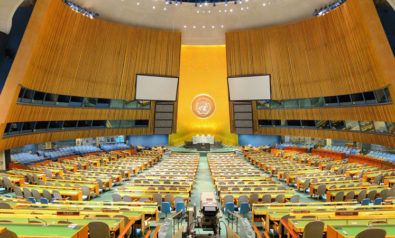



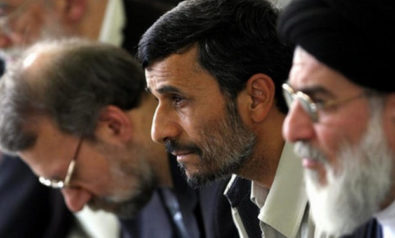

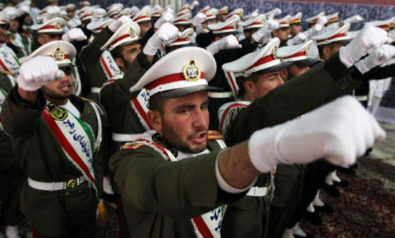


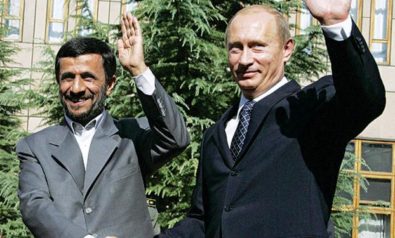


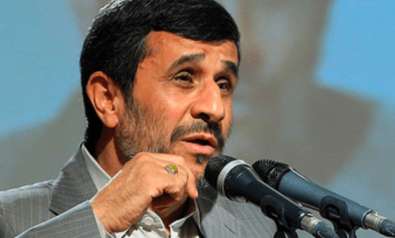



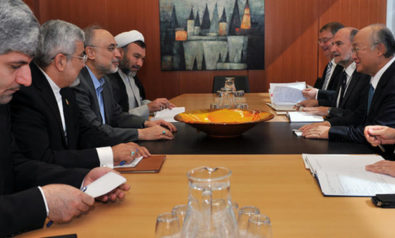

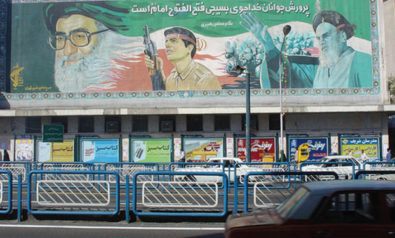

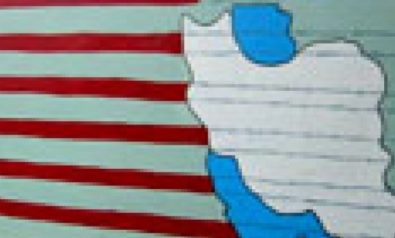


Comment